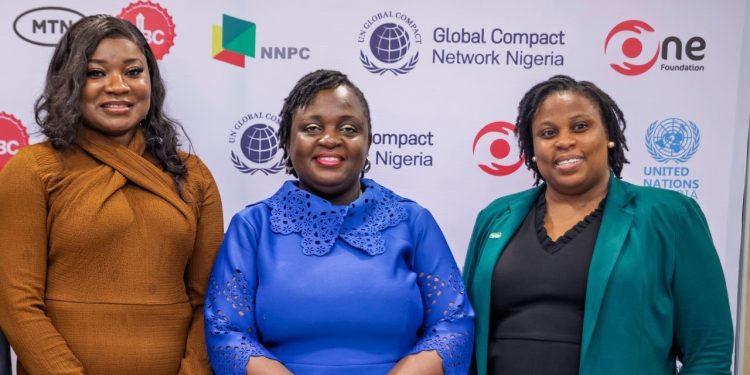With less than five years remaining to achieve the Sustainable Development Goals (SDGs), global and local partners are urging Nigeria’s private sector to accelerate efforts through six critical transition pathways—food systems, energy access, digital connectivity, education, job creation, and climate resilience.
At a high-level gathering, the United Nations, Sterling One Foundation, and the United Nations Global Compact Network Nigeria stressed the urgency of addressing Nigeria’s deep-rooted development challenges, particularly with 63 per cent of the population living in multidimensional poverty.
The CEO of Sterling One Foundation underlined the importance of decisive action, noting that millions remain vulnerable to climate change, inequality, and economic instability. She emphasized that private sector collaboration, bold investments, and scalable solutions are essential to closing the gap. “This is why convening like this is timely and necessary—to build alignment, scale ideas, and drive action where it matters most,” she said.
UNGC Network Nigeria’s executive director highlighted that aligning business strategies with the SDGs is both a moral imperative and a pathway to innovation and resilience. She called on businesses to channel investments into high-impact areas that can generate sustainable returns for both society and the economy.
Ecobank Nigeria’s chairman called for strong initiatives in food systems and sustainable energy, envisioning Africa’s potential to lead in climate-smart development. Meanwhile, the head of Nigeria’s Presidential Fiscal Policy & Tax Reform Committee revealed that the country’s upcoming fiscal strategy will embed SDG principles into governance reforms, ensuring long-term alignment with development goals.
United Nations Resident and Humanitarian Coordinator in Nigeria emphasized the vital role of collective action at the local level. He noted that the private sector’s financial resources, technology, and expertise give it a powerful position in driving progress.
“By embedding the SDGs into our corporate strategies, supply chains, and investments, we are not just advancing global development; we are creating long-term value for our businesses, our people, and our planet,” he said.
The renewed call reinforces the need for bold, coordinated private sector action to meet the 2030 targets and reshape Nigeria’s development landscape.










